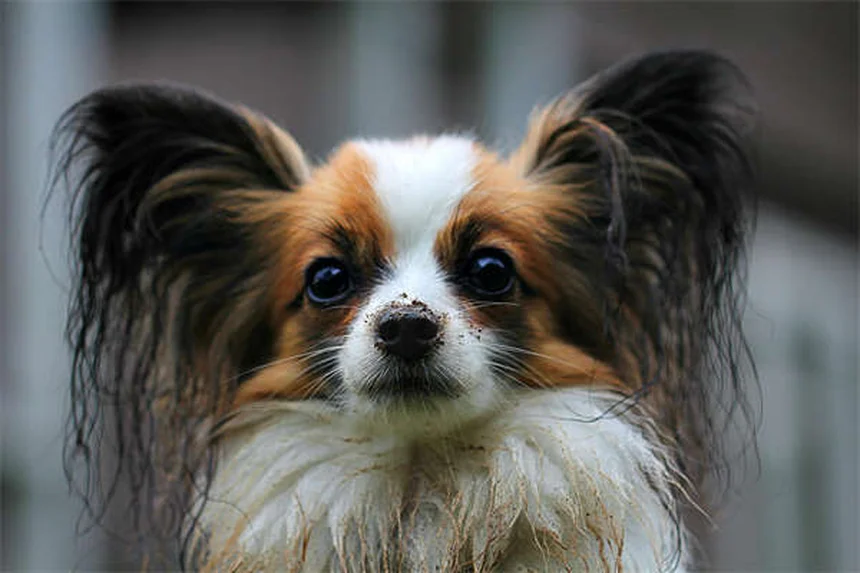Advertisement
Why won't my guinea pig eat? The answer is simple but serious: when guinea pigs stop eating, it's always an emergency. These little guys have super sensitive digestive systems that can shut down fast - we're talking life-threatening within 24 hours. I've cared for dozens of guinea pigs over the years, and let me tell you, appetite loss is one of the scariest symptoms we see.The good news? If you catch it early and act fast, most cases are treatable. In this guide, I'll walk you through exactly what to look for and when to rush to the vet. We'll cover everything from hidden dental issues to stress triggers that might be putting your piggy off their food. Because here's the truth - guinea pigs don't just stop eating without a reason, and it's our job as pet parents to figure out why.
E.g. :12 Clear Signs Your Cat Loves You (Proven by Science!)
- 1、When Your Guinea Pig Stops Eating: What You Need to Know
- 2、Why Won't My Guinea Pig Eat?
- 3、Getting Help: What Vets Do
- 4、Caring for a Recovering Guinea Pig
- 5、Prevention Is Better Than Cure
- 6、When to Sound the Alarm
- 7、Beyond the Basics: Additional Considerations for Guinea Pig Health
- 8、Understanding Age-Related Changes
- 9、The Emotional Side of Guinea Pig Care
- 10、Advanced Care Techniques
- 11、The Bigger Picture of Guinea Pig Wellness
- 12、FAQs
When Your Guinea Pig Stops Eating: What You Need to Know
Understanding Appetite Issues
Hey there, fellow guinea pig lovers! Let's talk about something serious but often overlooked - when our furry friends stop eating. Did you know guinea pigs can't survive more than 24 hours without food? Their digestive systems need constant movement, so when they stop eating, it's a big red flag.
There are two main types of eating problems we see:Inappetence (partial loss of appetite) and anorexia (complete refusal to eat). While infections often cause anorexia, inappetence might stem from simpler issues like dirty water bowls or sudden temperature changes. I've seen cases where just moving the cage to a quieter spot solved the problem!
Spotting the Warning Signs
How can you tell if your piggy's not eating right? Look for these clues:
- That adorable round belly looking smaller
- Food staying untouched in the bowl
- Less energy during playtime
- Coat looking rough instead of shiny
Here's a quick comparison of normal vs. concerning behavior:
| Normal Behavior | Warning Signs |
|---|---|
| Excited squeaks at feeding time | Ignoring favorite treats |
| Consistent weight | Noticeable weight loss |
| Active and curious | Lethargic or hiding |
Why Won't My Guinea Pig Eat?
 Photos provided by pixabay
Photos provided by pixabay
Common Culprits Behind Appetite Loss
Ever wonder what could make your guinea pig stop eating? Let me break it down for you:
Dental problems top the list - those constantly growing teeth can cause real trouble if they're not wearing down properly. I once fostered a piggy named Peanut who stopped eating because his back teeth were overgrown. A quick trim at the vet and he was back to munching happily!
Other causes include:
- Stress from loud noises or new pets
- Recent vet visits or surgeries
- Extreme heat or cold
- Bacterial or parasitic infections
The Hidden Danger: GI Stasis
Here's something scary - when guinea pigs stop eating, their gut movement slows down. This can lead to gastrointestinal stasis, where food stops moving through their system. It's like a traffic jam in their tummy! Without treatment, this can become life-threatening within hours.
Getting Help: What Vets Do
Diagnosing the Problem
When you rush to the vet with a non-eating guinea pig, what happens next? First, they'll ask about your pet's history - any recent changes? New foods? Then comes the physical exam, checking teeth, listening to the belly, and maybe some tests.
Fun fact: Guinea pigs are masters at hiding illness. That's why vets often need X-rays or blood work to see what's really going on inside those tiny bodies!
 Photos provided by pixabay
Photos provided by pixabay
Common Culprits Behind Appetite Loss
Treatment depends on the cause, but often includes:
- Critical care formula - a special mush fed by syringe
- Pain medication if there's dental issues
- Vitamin C supplements
- Probiotics to restore gut health
I always keep emergency critical care formula at home - it's saved my piggies more than once during late-night scares!
Caring for a Recovering Guinea Pig
Creating a Healing Environment
Recovery time needs special care. Here's what works:
- Keep them separate from cage mates
- Maintain a quiet, warm space
- Offer favorite foods to encourage eating
- Monitor poop production (yes, really!)
Remember that time I mentioned Peanut? After his dental work, we set up a "recovery suite" in my bedroom - complete with soft fleece, a heat pad on low, and his favorite cucumber slices. Within two days, he was popcorning again!
Hand-Feeding Techniques
Sometimes you'll need to syringe-feed. It's tricky but doable! Wrap your piggy in a towel, go slow, and let them swallow between bites. Never force food - you could accidentally send it into their lungs.
Prevention Is Better Than Cure
 Photos provided by pixabay
Photos provided by pixabay
Common Culprits Behind Appetite Loss
Want to keep your guinea pig eating happily? Follow these tips:
- Unlimited timothy hay - the foundation of their diet
- Fresh veggies daily (but introduce new ones slowly)
- High-quality pellets without colorful bits
- Clean water changed daily
Did you know some guinea pigs are picky about water bottles? Mine refuse to drink from anything but glass bottles - plastic makes the water taste funny to them!
Stress Reduction Strategies
Guinea pigs are sensitive souls. Keep their environment:
- Consistent - avoid frequent cage changes
- Peaceful - loud TVs or barking dogs can stress them
- Comfortable - ideal temperature is 65-75°F
Here's a guinea pig joke for you: Why did the guinea pig sit on the lettuce? Because he wanted a balanced meal! Okay, maybe stick to my care advice instead of my comedy skills...
When to Sound the Alarm
Emergency Situations
Some signs mean vet immediately:
- No eating for more than 12 hours
- No poop production
- Lethargy or inability to stand
- Loud teeth grinding (sign of pain)
Pro tip: Keep your exotic vet's number saved in your phone. Regular dog/cat vets often don't have guinea pig expertise!
Monitoring Between Vet Visits
Between check-ups, become a guinea pig detective:
- Weigh weekly - kitchen scales work great
- Watch eating habits - know their favorites
- Check teeth monthly (gently lift those lips)
Remember, we're their voice - they depend on us to notice when something's wrong. With proper care and attention, we can keep our piggies happy, healthy, and hungry for all the right reasons!
Beyond the Basics: Additional Considerations for Guinea Pig Health
The Importance of Social Interaction
You might not realize this, but guinea pigs are incredibly social creatures. Isolation can actually cause appetite loss just like physical illness does. I've seen cases where a lonely guinea pig stopped eating until we introduced a compatible cage mate.
Here's something fascinating - guinea pigs have complex social structures in the wild. When we keep them as pets, we need to respect their need for companionship. That's why many European countries actually mandate keeping guinea pigs in pairs! A solo piggy might develop what we call "depression anorexia," where they lose interest in food due to loneliness.
Seasonal Changes and Appetite
Ever notice your guinea pig eating less in summer? That's completely normal! Just like us, their appetites fluctuate with temperature changes. During hot weather, they might prefer juicy vegetables over dry hay.
Here's a quick comparison of seasonal eating habits:
| Season | Typical Appetite Changes | Recommended Adjustments |
|---|---|---|
| Summer | Decreased hay consumption | Offer more hydrating veggies like cucumber |
| Winter | Increased hay consumption | Provide extra bedding for warmth |
Understanding Age-Related Changes
Senior Guinea Pig Care
Did you know guinea pigs are considered seniors at around age 4? Older piggies often need dietary adjustments as their metabolism slows down. You might notice them being pickier about food textures or needing softer options.
I currently care for a 6-year-old named Mr. Whiskers who developed arthritis. We had to raise his food bowl so he wouldn't strain his neck, and we switched to softer hay varieties. The transformation was amazing - he went from barely eating to maintaining a healthy weight!
Baby Guinea Pig Nutrition
On the flip side, young guinea pigs have completely different nutritional needs. Babies under 6 months need alfalfa hay instead of timothy for the extra calcium and protein. They're like little eating machines, needing constant access to food as they grow.
Remember when I fostered that litter of four babies? They would eat nearly their body weight in food daily! Watching them grow taught me how crucial proper nutrition is during those first months.
The Emotional Side of Guinea Pig Care
Bonding Through Feeding
Here's a heartwarming fact - hand-feeding can actually strengthen your bond with your guinea pig. When they associate you with positive experiences like tasty treats, they become more comfortable and trusting.
Try this trick: offer small pieces of their favorite vegetable from your hand while speaking softly. Over time, you'll notice them coming to you more readily. My piggy Bella used to hide when I entered the room, but after consistent positive feeding interactions, she now greets me with excited wheeks!
Recognizing Individual Preferences
Just like people, every guinea pig has unique food preferences. Some go crazy for cilantro, while others turn up their noses at it. Have you ever met a guinea pig who hates carrots? I have - my friend's piggy Winston would actually push carrots out of his bowl with his nose!
Keeping a food journal can help you track what your pet enjoys most. Note which foods disappear first and which get left behind. This information becomes invaluable if they ever get sick and you need to entice them to eat.
Advanced Care Techniques
Creating a Balanced Diet
While we often focus on hay and veggies, there's more to guinea pig nutrition. Did you know they need about 10-15mg of vitamin C per day? That's why many owners supplement with bell peppers or special vitamin C tablets.
Here's a sample daily menu for a healthy adult guinea pig:
- Unlimited timothy hay (about a pile the size of their body)
- 1/8 cup high-quality pellets
- 1 cup mixed vegetables (leafy greens should make up 75%)
- 1-2 small fruit treats weekly
When to Consider Special Diets
Some guinea pigs develop conditions requiring dietary modifications. For example, pigs with bladder stones might need low-calcium greens, while overweight piggies benefit from more exercise and limited pellets.
I once cared for a guinea pig named Oliver who had diabetes. We worked with our vet to create a low-sugar diet plan that kept his condition stable for years. It just goes to show how adaptable these little creatures can be with proper care!
The Bigger Picture of Guinea Pig Wellness
Connecting Diet to Overall Health
What many people don't realize is that a guinea pig's eating habits affect their entire wellbeing. Proper nutrition prevents so many common health issues from dental problems to urinary tract infections.
Think of it this way - every bite of hay helps wear down their constantly growing teeth, while the right balance of veggies supports their immune system. It's all connected in one beautiful cycle of health!
The Joy of Watching a Healthy Guinea Pig
There's nothing quite like seeing a happy, healthy guinea pig enjoying their food. The way they "popcorn" when excited, the contented munching sounds, the eager anticipation at meal times - these moments make all the care worthwhile.
My favorite part of each day is feeding time, when all my piggies come running to see what delicious treats I've brought. Their enthusiasm reminds me why proper nutrition matters so much - it's not just about survival, but about helping them thrive!
E.g. :Loss of Appetite in Guinea Pigs | PetMD
FAQs
Q: How long can a guinea pig go without eating before it's dangerous?
A: Here's the scary truth - guinea pigs shouldn't go more than 12 hours without eating. Unlike humans, their digestive systems need constant food movement to function properly. I tell all my clients to consider it an emergency if their piggy hasn't eaten in 6-8 hours. The clock starts ticking fast because their gut can slow down (called GI stasis) and become life-threatening within a day. If you notice your guinea pig refusing food, don't wait - call your exotic vet immediately. In the meantime, you can try offering their absolute favorite treats (like fresh cilantro or small pieces of fruit) to stimulate appetite.
Q: What are the most common reasons guinea pigs stop eating?
A: From my experience, dental problems cause about 60% of appetite loss cases in guinea pigs. Those constantly growing teeth can develop sharp points or malocclusion that make chewing painful. Other top culprits include stress (from loud noises, new pets, or cage changes), infections (watch for diarrhea or nasal discharge), and environmental factors like extreme temperatures. I once had a client whose guinea pig stopped eating simply because they moved the cage near a drafty window! The key is to play detective - look for other symptoms that might point to the underlying cause.
Q: Can stress really make my guinea pig stop eating?
A: Absolutely! Guinea pigs are prey animals by nature, so they're wired to be super sensitive to stress. I've seen cases where something as simple as rearranging furniture near their cage caused temporary appetite loss. Major stressors include introducing new cage mates, loud household noises (like construction or barking dogs), or even changes in their daily routine. The solution? Create a calm environment with hiding spots, maintain consistent feeding times, and introduce changes gradually. If you suspect stress is the issue, try placing a blanket over part of their cage to create a cozy, secure space.
Q: What should I feed a guinea pig that won't eat?
A: First - get to a vet for proper diagnosis and treatment. But for temporary at-home care, I recommend critical care formula (available at most pet stores), which you can syringe-feed every 2-3 hours. In a pinch, you can blend their regular pellets with water into a thin paste. Never force-feed as you risk aspiration! While recovering, offer small amounts of their favorite fresh veggies (like romaine lettuce or bell peppers) to encourage eating. Avoid sugary fruits though - the sugar can upset their delicate gut balance when they're not feeling well.
Q: How can I prevent appetite loss in my guinea pig?
A: Prevention starts with the basics: unlimited timothy hay (for proper tooth wear and digestion), fresh water daily (try both bottles and bowls - some piggies are picky!), and a consistent routine. I recommend weekly weigh-ins (a sudden drop often signals problems before appetite changes) and monthly teeth checks. Also, keep their environment between 65-75°F - extreme heat or cold can trigger appetite issues. Most importantly, know your piggy's normal behavior so you can spot changes immediately. As we say in the guinea pig community, "the sooner you notice, the better the outcome!"

















